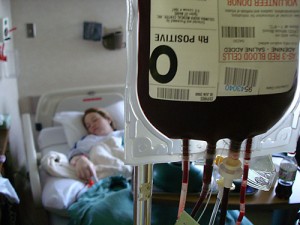Electronic cigarettes, or e-cigs, are becoming more and more prevalent in our everyday lives. It is not that uncommon to see someone “vaping” an e-cig instead of smoking a normal cigarette as you walk down the street. However, the million dollar question is, are electronic cigarettes a viable alternative to conventional cigarettes?
Electronic cigarettes are battery-operated devices that vaporize nicotine containing solvents (commonly known as e-liquid) without actually burning tobacco. The e-liquid may also be flavored or non nicotine-containing to suit different users. Electronic cigarettes boasts the advantage of not creating tar and many carcinogenic chemicals that comes with burning tobacco like in traditional cigarettes.
With its rising popularity around the world, e-cigarettes proclaimed a shocking two billion dollar global market value as of 2012 (Czoli et al). This popularity especially influences children and young adults, with a study showing that out of 1188 young adults surveyed in Canada, 43.4% have heard of e-cigarettes, and 16.1% have tried them (Czoli et al).
In my opinion, the current literature presents conflicting results in regards to the viability of e-cigarettes being a cigarette alternative. For example, a prospective study done on 71 adult smokers trying e-cigarettes for the first time showed that 40.8% of them are classified as smoking quitters after 12 months of using e-cigarettes (Polosa et al). On the other hand, another article published in 2014 stated that e-cigarette use was not associated with greater intention of quitting smoking (Grana, et al).
There are also different accounts of the health effects of e-cigarette smoking, with an article demonstrating e-cigarettes helping smokers with asthma to lessen the hardship of smoking caused asthma symptoms (Polosa et al). While a comprehensive report showed that the vapors of the e-liquid causes progressively severe loss of lung endothelial barrier (the protective lining in your lung tissue) as the e-liquid dosage increases (Schweitzer et al).
What is really happening here?Are e-cigarettes bad or good for you? The way I see it, there isn’t enough information on this topic yet, and one should take any information you see online with a grain of salt. For example, an article published on ScienceNews, a popular public science magazine only mentioned the harmful effects of e-cigarette smoking, without ever considering the positive effects documented in many other peer-reviewed research articles shown above.
This is a classical example of poor science communication, since the article only presents the negative effects without mentioning any possible benefits. As well, compared to cigarettes, which have been around since the 9th century and their well established negative health effects. Electronic cigarettes have only been around for 13 years, and the current scientific literature lacks any definitive evidence on the negative or positive effects on e-cigarette smoking.
What I am trying to say is, don’t jump the gun when it comes to passing judgement on e-cigarette smoking, for you may be forsaking some people that may actually benefit from transitioning from smoking cigarettes to smoking their electronic counter part. Here is BBC’s short report on e-cigarette smoking:

By: Brian (Yu Chieh) Cheng





